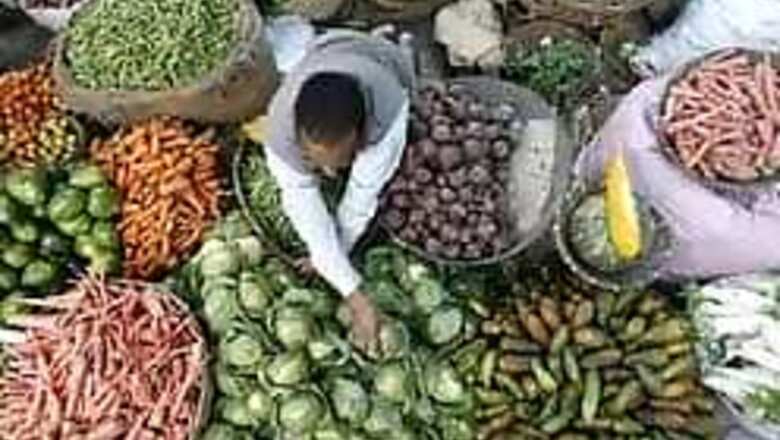
views
New Delhi: The Centre on Monday announced a slew of measures to control inflation, banning the export of non-basmati rice and pulses and scrapping the import duty on crude palm and soya oils.
The measures to control inflation, which has touched 6.68 per cent for the week ending March 15, were decided at a three-hour meeting of the Cabinet Committee on Prices (CCP) chaired by Prime Minister Manmohan Singh.
All edible oils in crude form can now be imported at zero duty compared to the 20 per cent duty. The duty on refined oils and vanaspati would be 7.5 per cent.
The Government banned the export of non-basmati rice and decided to extend the ban on pulses export for one more year from Monday.
It also raised the minimum export price of basmati rice to $1,200 per ton from $1,100 to discourage export and increase availability in the domestic market. It also cut import duty on butter and clarified butter (ghee) from 40 per cent to 30 per cent.
Besides, the 15 per cent import duty on maize was abolished, applicable on import of up to five lakh tonnes. These decisions will come into effect from Monday midnight tonight but a notification would be issued tomorrow, said Finance Minister P Chidambaram after the meeting.
Asked whether these measures would help in containing inflation, which has touched 6.68 per cent for the week ended March 15, Chidambaram said: "I sincerely hope so."
The CCP meeting, which was attended by Commerce and Industry Minister Kamal Nath, Agriculture Minister Sharad Pawar, Railway Minister Lalu Prasad and Chidambaram, deferred a decision on reducing duty on iron and steel as Steel Minister Ram Vilas Paswan is abroad.
The CCP was informed that the Ministries of Commerce and Industry and Steel are trying to bring together iron ore and steel producers to work out ways to moderate prices. Steel producers have increased prices between Rs 3,500 to Rs 4,000 per tonne during the past three months, triggering concerns among dealers and realty developers.
PAGE_BREAK
Chidambaram said hardly five or six states have started collecting data on stock position of various commodities, although the Centre had empowered them 18 months ago to impose "restrictions on stock limits under the Essential Commodities Act."
The meeting was convened to discuss measures to combat inflation, to rein in which the government's Left allies today gave the administration two weeks.
The Reserve Bank of India (RBI), which will announce a new credit policy on April 29, too expressed concerned on Monday. "Inflation is unacceptably high. We are very, very concerned—we are in full readiness to take appropriate action to contain inflation," RBI governor Y V Reddy said on Monday.




















Comments
0 comment